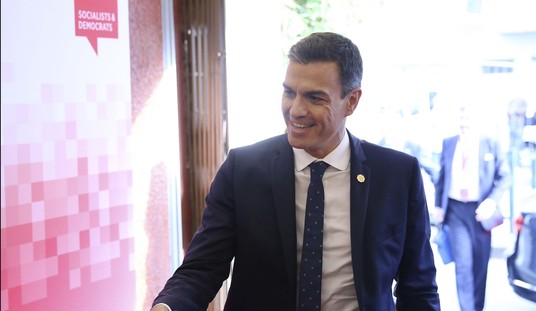Is this a protest of sorts or just prudence in avoiding encounters with the public as much as possible now that anti-police sentiment has turned murderous? Ryan Lovelace notes that one cop told the New York Post yesterday, “I’m not writing any summonses. Do you think I’m going to stand there so someone can shoot me or hit me in the head with an ax?”
If it is (partly) a protest, who are they protesting?
Citations for traffic violations fell by 94 percent, from 10,069 to 587, during that time frame.
Summonses for low-level offenses like public drinking and urination also plunged 94 percent — from 4,831 to 300.
Even parking violations are way down, dropping by 92 percent, from 14,699 to 1,241.
Drug arrests by cops assigned to the NYPD’s Organized Crime Control Bureau — which are part of the overall number — dropped by 84 percent, from 382 to 63.
The Post obtained the numbers hours after revealing that cops were turning a blind eye to some minor crimes and making arrests only “when they have to” since the execution-style shootings of Officers Rafael Ramos and Wenjian Liu.
That last line jumped out at Reason’s Scott Shackford just as it jumped out at me. Let’s hope everything returns to normal in NYC soon so that the police can get back to making arrests even when they don’t have to, I guess.
De Blasio met with the heads of five city police unions earlier this afternoon to try to heal his rift with the force, which has now reached the point of newly minted officers booing him at their graduation. One union, the Patrolmen’s Benevolent Association, was initially blamed for sending a memo on the night that Ramos and Liu were shot urging cops to respond with two units to every call going forward and to take “absolutely NO enforcement action in the form of arrests and or summonses” unless necessary. The PBA denied circulating the memo but evidently the force got the message anyway. Look again at that decline in citations for traffic violations. Fewer than 600 tickets over a seven-day span in a city of many millions, huh? Yowza.
The safety concerns are understandable, especially when you remember that that degenerate who murdered Ramos and Liu wasn’t the first to target an NYPD officer this fall. Another man attacked two cops with an axe back in October, splitting one of their skulls before they shot him dead. Both of those were ambush attacks, though, not assaults that happened in the course of a stop. A man who’s hot to murder cops typically doesn’t wait to get pulled over for speeding to try something, which is why the NYPD is now combing social media, looking for threats to police by would-be copycats. So if they’re skimping on issuing traffic tickets, odds are it’s less because they’re worried they’re going to stumble onto the next Ismaaiyl Brinsley than because the general climate of anti-cop sentiment at the moment might make an otherwise nonviolent perp quicker to turn hostile if he’s stopped. How long can that go on before the police decide it’s safe enough to start issuing tickets again? And if the anti-police climate is that much of a threat, shouldn’t they be going easy on violent criminals for awhile too? Logically, a man wanted for murder already is more likely to pull a gun or knife on a cop in the course of an arrest than a man being stopped for possession of half an ounce of weed.
So maybe the slowdown in arrests is more of a protest, partly against de Blasio for being too sympathetic to “I can’t breathe” protesters and partly to give the public a taste of what life with a force that’s less aggressive in policing minor offenses would be like. That’s a tricky line PR-wise, though. Now that voters know there’s an informal police boycott of punishing lesser offenses, how much will they blame de Blasio if the quality of life in NYC starts to decline and how much will they blame the force? Or does it matter? The political endgame for police here, I assume, is to have voters so disgusted with the state of the city under de Blasio that they’ll bounce him out of office in 2017 even if they blame the police for the uptick in crime. You can replace the mayor, after all, but you can’t replace the force. I wonder how many NYC voters will be willing to do that, though, and how many will resist on grounds that the police, which ostensibly serve the people, shouldn’t have de facto veto power via nonenforcement of the law over the people’s choice to lead the city. Shackford makes a good point too in noting that, ironically, this “work stoppage” is giving police critics exactly what they want. If Eric Garner were still out on the street selling “loosies,” he’d be doing brisk business this week without fear of police interference. The NYPD’s making a heavy bet here that the “broken windows” theory is correct, but no matter which way that bet turns out, they stand to lose greatly if this goes on for very long. It may be that New Yorkers shrug at seeing petty offenses proliferate and find that they can tolerate life in a slightly messier city just fine, in which case the cops lose their leverage. Or it may be that “broken windows” is correct in holding that tolerance of petty offenses encourages hardened criminals to attempt more serious offenses — in which case the cops will, before long, have a much more dangerous crime wave on their hands. That’s the worst possible outcome for a force that’s justifiably worried about its safety, no?








Join the conversation as a VIP Member